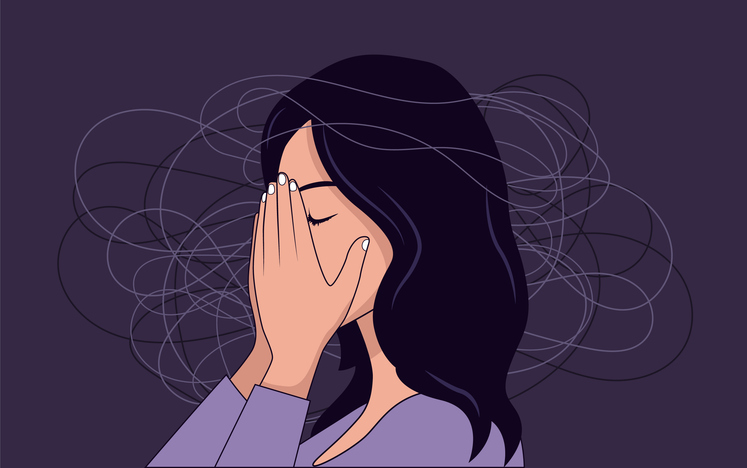Symptoms of Lack of Sleep

Sleep isn’t optional—it’s your body’s operating system. When it crashes, everything glitches.
Symptoms of Lack of Sleep: Understanding the Warning Signs
Sleep is essential for mental, emotional, and physical well-being. When we don’t get enough rest, the effects go far beyond just feeling tired. Lack of sleep can disrupt nearly every system in the body, leading to a range of symptoms that impact daily functioning.
Let's explore the key symptoms of sleep deprivation and what they mean for your health.
🧠 1. Cognitive Symptoms
❌ Difficulty Concentrating
When you’re sleep-deprived, your brain struggles to focus and process information efficiently. Tasks that require attention, such as reading or problem-solving, feel much harder.
❌ Memory Problems
Sleep plays a crucial role in memory consolidation. Without adequate sleep, it’s challenging to retain new information or recall past memories accurately.
❌ Poor Decision-Making
Lack of sleep impairs the prefrontal cortex, the brain region responsible for planning and decision-making. This can lead to impulsive actions and difficulty evaluating risks.
😟 2. Emotional Symptoms
❌ Increased Irritability
Sleep deprivation heightens activity in the amygdala, the brain’s emotional center, making you more prone to mood swings and irritability.
❌ Anxiety and Stress
A lack of sleep elevates cortisol, the stress hormone, making it harder to manage anxiety and maintain a calm state of mind.
❌ Risk of Depression
Chronic sleep deprivation has been linked to a higher risk of developing depressive symptoms due to disruptions in neurotransmitter balance.
🛌 3. Physical Symptoms
❌ Fatigue and Low Energy
Insufficient sleep prevents your body from completing restorative processes, leading to persistent fatigue and sluggishness.
❌ Weakened Immune System
Sleep is essential for producing cytokines—proteins that help fight infection. Lack of sleep lowers immunity, making you more susceptible to colds and infections.
❌ Weight Gain and Increased Appetite
Sleep deprivation disrupts the balance of ghrelin (hunger hormone) and leptin (satiety hormone), increasing cravings and appetite, particularly for high-carb and sugary foods.
🏃♂️ 4. Behavioral Symptoms
❌ Procrastination and Low Motivation
Without proper rest, dopamine regulation is impaired, making it harder to feel motivated or tackle tasks promptly.
❌ Clumsiness and Lack of Coordination
Sleep deficiency affects the cerebellum, the part of the brain responsible for balance and coordination, leading to more frequent accidents or spills.
❌ Social Withdrawal
Lack of sleep reduces your ability to read social cues and respond empathetically, often resulting in withdrawing from interactions.
📊 Stages of Sleep
| Stage | Description | Key Features | Duration |
|---|---|---|---|
| NREM Stage 1 | Light Sleep | Transition between wakefulness and sleep; muscles relax. | 1-5 minutes |
| NREM Stage 2 | Deeper Light Sleep | Sleep spindles and K-complexes occur, aiding memory. | 10-25 minutes |
| NREM Stage 3 | Deep Sleep (Slow-Wave) | Restorative sleep; delta waves dominate. | 20-40 minutes |
| REM Sleep | Dream Sleep | Vivid dreams; brain activity similar to wakefulness. | 10-60 minutes |
🔄 How Many Times Do We Cycle Through Sleep Stages?
A person typically cycles through the different stages of sleep 4 to 6 times per night. Each sleep cycle lasts about 90 to 120 minutes. Early cycles have more deep sleep (NREM Stage 3), while later cycles feature longer REM stages. Maintaining these cycles is crucial for both physical restoration and mental health.
🌟 Key Takeaway:
If you’re experiencing several of these symptoms regularly, it might be time to assess your sleep habits and make adjustments. Prioritizing consistent, quality sleep can significantly improve your cognitive, emotional, and physical well-being.
